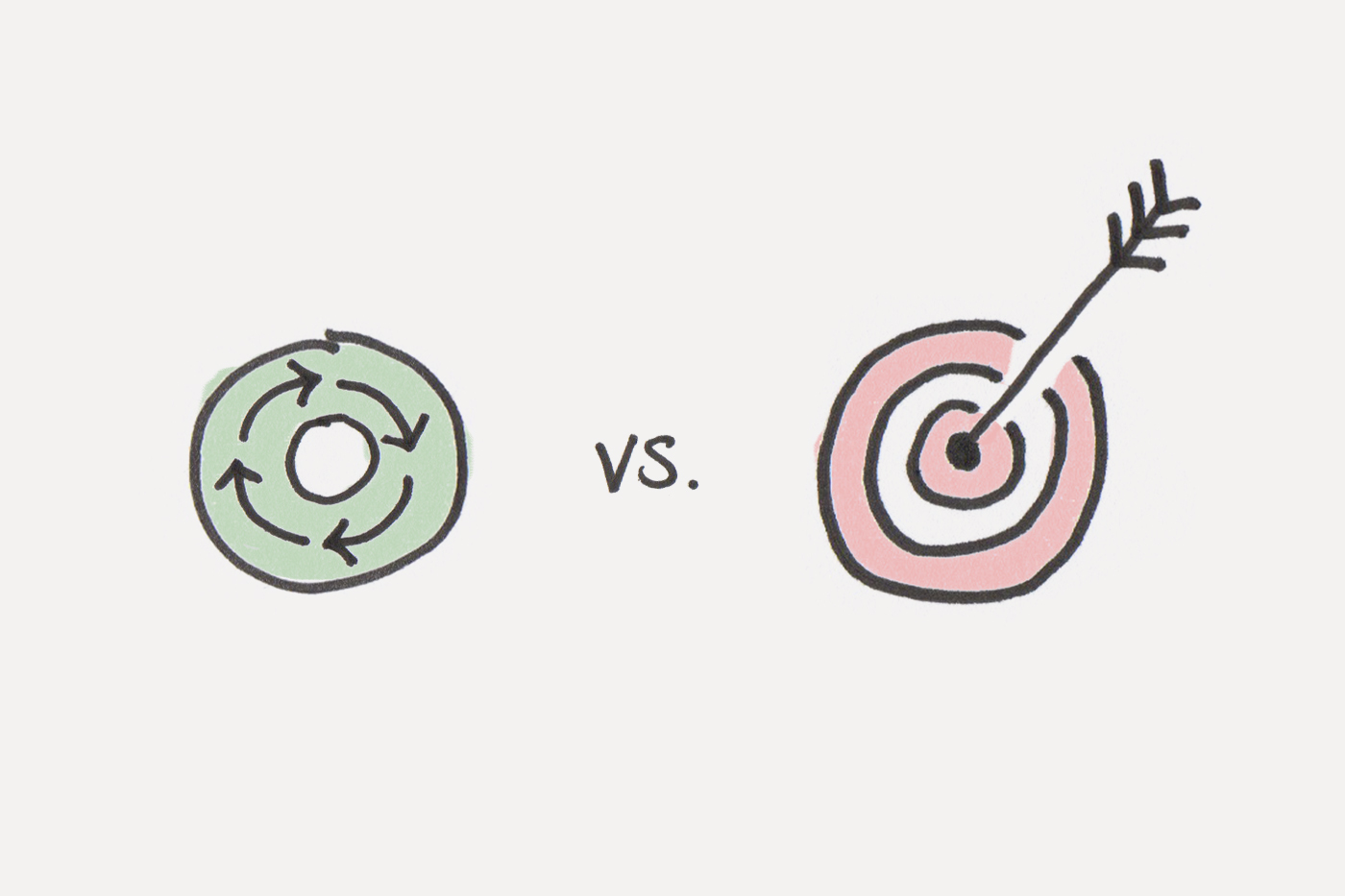
Introduction
Why developing good habits can solve the majority of your problems
Developing good habits is crucial for personal growth and success. When you cultivate positive habits, you establish a routine that supports your goals and values. Good habits help you manage your time effectively, improve your productivity, and maintain a sense of discipline. They have the power to address many challenges and solve problems that might otherwise seem overwhelming. By incorporating habits such as daily exercise, proper planning, and regular self-reflection, you set yourself up for success and eliminate unnecessary stress and chaos from your life.
The benefits of cultivating positive habits
Cultivating positive habits has numerous benefits that can positively impact various aspects of your life. Firstly, it increases your self-discipline and willpower, enabling you to stay focused and committed to your goals. Good habits also improve your overall well-being by promoting physical and mental health. For example, a habit of regular exercise can boost your energy levels, enhance your mood, and improve your sleep patterns. Additionally, cultivating positive habits can improve your relationships, as it demonstrates reliability, consistency, and a proactive approach to personal growth.

Habit 1: Time Management
The importance of effective time management
Effective time management is crucial for achieving success in both personal and professional life. By managing your time efficiently, you can prioritize tasks, avoid procrastination, and make the most out of your day. Good time management allows you to allocate enough time for important activities, reduces stress, and increases productivity. It helps you meet deadlines, accomplish goals, and maintain a healthy work-life balance. Without proper time management, you may find yourself overwhelmed, constantly playing catch-up, and struggling to achieve your desired outcomes.
Strategies to improve your time management skills
Improving your time management skills requires a combination of self-discipline and effective strategies. Here are some strategies that can help you better manage your time:
Set clear goals and prioritize tasks: Clearly define your objectives and break them down into smaller, manageable tasks. Prioritize your tasks based on their urgency and importance.
Create a schedule: Plan your day or week ahead by creating a schedule. Be realistic and allocate specific time slots for each task or activity.
Eliminate distractions: Identify and eliminate distractions that consume your time, such as unnecessary phone notifications or excessive social media browsing. Stay focused and maintain discipline.
Delegate and outsource: Learn to delegate tasks that can be done by others, freeing up your time for more important responsibilities. Consider outsourcing tasks that can be handled by professionals or experts in the field.
Learn to say no: Understand your limits and learn to say no when you are already overwhelmed with tasks. It's important to set boundaries and prioritize your own well-being.
By implementing these strategies and consistently practicing good time management habits, you can improve your productivity, reduce stress, and achieve your goals more effectively. Remember, effective time management is a skill that can be developed and honed over time with dedication and practice.

Habit 2: Goal Setting
Why setting clear goals is essential
Setting clear goals is essential for personal and professional growth. It provides direction, motivation, and focus in life. Clear goals help individuals to understand what they want to achieve and why it is important to them. By setting goals, individuals can create a roadmap to success and measure their progress along the way. It helps to prioritize tasks, allocate resources effectively, and stay committed to achieving desired outcomes.
Techniques for setting and achieving your goals
To set and achieve your goals effectively, consider the following techniques:
- SMART goals: Make your goals Specific, Measurable, Achievable, Relevant, and Time-bound. This framework ensures clarity and provides a structure for goal setting.
- Break it down: Break your goals into smaller, manageable tasks. This makes them more attainable and allows you to track your progress.
- Visualize success: Imagine yourself achieving your goals and visualize the positive impact it will have on your life. This can increase motivation and drive.
- Create an action plan: Develop a step-by-step action plan outlining the necessary actions and resources required to achieve your goals.
- Monitor and adjust: Regularly monitor your progress and make necessary adjustments to stay on track.
By implementing these techniques, individuals can set clear, achievable goals and work towards achieving them effectively.
Habit 3: Communication Skills
How effective communication can solve many problems
Effective communication is vital for resolving conflicts, building strong relationships, and achieving success in both personal and professional settings. It enables individuals to express their thoughts and feelings clearly, listen attentively, and understand others' perspectives. When communication is effective, misunderstandings and misinterpretations are minimized, fostering better collaboration and problem-solving. It promotes trust, empathy, and mutual respect, leading to smoother interactions and improved outcomes. By mastering communication skills, individuals can overcome obstacles, address challenges, and create a positive and productive environment.
Tips for improving your communication skills
To enhance your communication skills, consider the following tips:
- Active listening: Pay attention to the speaker, provide feedback, and clarify information to ensure effective understanding.
- Clear and concise messaging: Use simple and straightforward language, avoid jargon, and structure your messages in a concise manner.
- Empathy: Put yourself in the other person's shoes, understand their emotions, and respond with compassion and understanding.
- Non-verbal cues: Pay attention to body language, facial expressions, and tone of voice to convey your message accurately.
- Practice and seek feedback: Engage in regular communication exercises, seek feedback from others, and continuously refine your communication skills.
By incorporating these tips into your daily interactions, you can become a more effective communicator, fostering better relationships and achieving greater success.

Habit 4: Self-Discipline
The role of self-discipline in problem-solving
Self-discipline is a crucial habit that plays a significant role in problem-solving. It is the ability to control one's impulses, emotions, and behaviors, and stay focused on the task at hand. Self-disciplined individuals can effectively prioritize their goals, resist distractions, and persevere through obstacles and setbacks. By cultivating self-discipline, individuals can develop the resilience and determination needed to overcome challenges and find solutions to problems. It allows individuals to stay committed to their objectives, make rational decisions, and take consistent actions towards achieving their desired outcomes.
Methods for developing self-discipline in your daily life
To develop self-discipline, here are some methods that can be incorporated into your daily life:
Set clear goals: Define your objectives and establish clear and specific goals to help you stay focused.
Create a routine: Develop a structured routine that includes regular habits and meaningful activities to cultivate discipline.
Practice delayed gratification: Learn to delay instant gratification and prioritize long-term rewards over short-term pleasures.
Break tasks into smaller steps: Divide complex tasks into smaller manageable steps, making it easier to stay disciplined and motivated.
Hold yourself accountable: Establish systems of accountability, such as setting deadlines or sharing your progress with others.
By implementing these strategies consistently, you can gradually strengthen your self-discipline and improve your problem-solving abilities.
Habit 5: Mindfulness and Self-Reflection
The power of mindfulness and self-reflection
Mindfulness and self-reflection are powerful habits that can greatly enhance personal growth and problem-solving abilities. Mindfulness involves being fully present in the moment, paying attention to thoughts, feelings, and sensations without judgment. It helps individuals become more aware of their inner experiences and external surroundings, fostering a deeper understanding of oneself and others. Self-reflection, on the other hand, involves introspection and analyzing one's thoughts, actions, and beliefs. It allows individuals to gain valuable insights, identify patterns, and make necessary adjustments for personal and professional development.
Practices to cultivate mindfulness and self-reflection habits
To cultivate mindfulness and self-reflection habits, individuals can incorporate the following practices into their daily lives:
Start a meditation practice: Dedicate a few minutes each day to sit quietly, focus on the breath, and observe the present moment. This can help develop a sense of calm, clarity, and self-awareness.
Keep a journal: Set aside time for reflective writing, jotting down thoughts, emotions, and experiences. This practice fosters self-reflection and allows for greater introspection.
Practice mindful eating: Slow down and pay attention to the sensory experience of eating. Notice the taste, texture, and smell of the food. Mindful eating promotes a healthier relationship with food and enhances self-awareness.
Engage in self-reflection exercises: Set aside regular time to reflect on personal experiences, challenges, and successes. Ask yourself questions that promote deeper understanding and self-discovery.
Embrace moments of solitude: Take breaks from technology and distractions to spend time alone. Use this time to reflect, recharge, and reconnect with oneself.
Through consistent practice, individuals can cultivate mindfulness and self-reflection as habits, leading to improved problem-solving skills, increased self-awareness, and overall personal growth.

Case Studies
Real-life examples of individuals who solved their problems through habits
Several individuals have successfully solved their problems by incorporating habits into their daily lives. These case studies illustrate the power of habits in personal growth and problem-solving.
One example is Sarah, who struggled with anxiety and stress. By practicing mindfulness and self-reflection, Sarah was able to develop a greater awareness of her emotions and triggers. Through consistent meditation and journaling, she gained valuable insights into her thought patterns and learned coping mechanisms to manage her anxiety effectively.
Another case study is Mark, who faced challenges in his professional life. Through the habit of self-reflection, Mark identified areas of improvement and made necessary adjustments to enhance his skills. Regularly engaging in self-reflection exercises allowed Mark to gain a deeper understanding of his strengths and weaknesses, leading to significant career growth.
Lessons learned from their experiences
These case studies highlight key lessons that can be learned from the experiences of individuals who solved their problems through habits.
First, practicing mindfulness and self-reflection can foster self-awareness and emotional intelligence. By paying close attention to their thoughts, feelings, and behaviors, individuals can gain a clearer understanding of themselves and others. This heightened self-awareness allows for better decision-making and problem-solving.
Second, consistent and dedicated practice is key. Both Sarah and Mark achieved results by committing to their habits on a regular basis. Developing habits requires discipline and perseverance, but the long-term benefits make it worth the effort.
Lastly, habits can lead to personal growth and professional development. By incorporating habits such as meditation, journaling, and self-reflection, individuals can continuously learn, adapt, and improve themselves. These habits provide a framework for self-improvement and can lead to a more fulfilling and successful life.
In conclusion, the power of habits, particularly mindfulness and self-reflection, should not be underestimated. Through real-life examples and the lessons learned from their experiences, it is clear that incorporating these habits can be transformative in solving problems and achieving personal growth.

Maintaining Your Habits
Tips for maintaining and reinforcing your positive habits
To successfully maintain your positive habits, consider the following tips:- Set specific goals: Clearly define what you want to achieve with your habit and set measurable targets to track your progress.- Create a routine: Incorporate your habit into your daily or weekly schedule. Consistency is key to reinforcing the habit.- Find accountability partners: Share your goals and progress with others who can support and hold you accountable.- Celebrate milestones: Recognize and reward yourself for achieving milestones along the way. This helps to reinforce the habit and motivate continued progress.
Overcoming challenges and staying consistent
Sticking to your habits can be challenging, but with some strategies in place, you can stay consistent:- Identify potential obstacles: Recognize the potential barriers that may hinder your habit formation and find ways to overcome them.- Practice self-discipline: Train your mind to stay focused and motivated, even when faced with distractions or temptations.- Track your progress: Keep a record of your habit-building journey to visually see your improvements and stay motivated.- Adjust when necessary: Be open to making adjustments to your habits as needed to ensure they continue to serve your goals.
By implementing these tips and strategies, you can maintain and reinforce your positive habits, leading to long-term personal growth and success.

Conclusion
Recap of the 5 habits that can fix 90% of your problems
In this blog post, we discussed five key habits that can have a significant impact on your life. These habits include setting specific goals, creating a routine, finding accountability partners, celebrating milestones, and overcoming challenges. By implementing these habits, you can increase your chances of success, improve your personal growth, and overcome challenges that may come your way.
Encouragement to start implementing these habits in your life
Now that you have learned about these habits, it's time to take action. Start by identifying one habit that resonates with you the most and commit to implementing it in your daily life. Remember, change takes time and effort, so be patient with yourself. Surround yourself with supportive people who can help you stay accountable and celebrate your progress. With consistent practice and determination, you can transform your life and achieve your goals. Take the first step and start implementing these habits today!
No comments:
Post a Comment